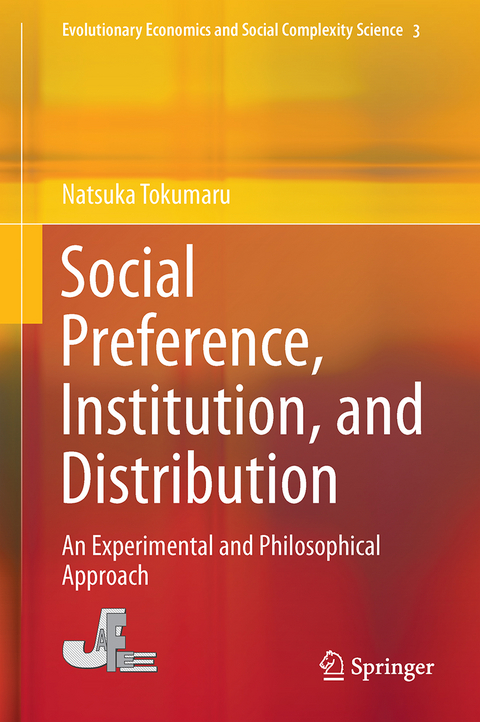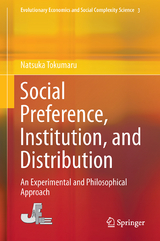Social Preference, Institution, and Distribution
Springer Verlag, Singapore
978-981-10-0136-9 (ISBN)
Natsuka Tokumaru, Lecturer (Dr.), Graduate School of Economics, Kyoto University, Yoshida-Honmachi, Sakyo-ku, Kyoto, 606-8501, Japantokumaru@econ.kyoto-u.ac.jp
Preface.- I. Introduction: What Experiments Can Do in the History of Economic Thought? : From Adam Smith to Vernon Smith.- II. Fairness Ideals, Hidden Selfishness and Opportunistic Behavior: Experimental Approach.- III. What is ‘Fair’ Distribution under Collaboration? : Evidences from Lab-Experiments.- IV. Income Sharing between Workers and Investors: Experiments on Functional Income Distribution.- V. Socially Responsible Investment: Distribution among Investors, Enterprises, and Society.- VI. From Micro-Analysis to Social Theory: Wieser's Gedankenexperiment and Social Economics.- VII. Conclusion: From Empirical Behavioral Theory to Evolutionary Theory of Institution.- Appendix.
| Erscheinungsdatum | 30.11.2015 |
|---|---|
| Reihe/Serie | Evolutionary Economics and Social Complexity Science ; 3 |
| Zusatzinfo | 2 Illustrations, color; 22 Illustrations, black and white; XII, 165 p. 24 illus., 2 illus. in color. |
| Verlagsort | Singapore |
| Sprache | englisch |
| Maße | 155 x 235 mm |
| Themenwelt | Geschichte ► Teilgebiete der Geschichte ► Wirtschaftsgeschichte |
| Sozialwissenschaften ► Pädagogik ► Sozialpädagogik | |
| Sozialwissenschaften ► Politik / Verwaltung ► Staat / Verwaltung | |
| Sozialwissenschaften ► Soziologie | |
| Wirtschaft ► Allgemeines / Lexika | |
| Wirtschaft ► Betriebswirtschaft / Management | |
| Wirtschaft ► Volkswirtschaftslehre ► Mikroökonomie | |
| Wirtschaft ► Volkswirtschaftslehre ► Wirtschaftspolitik | |
| Schlagworte | Behavioral Economics • Distribution • Economic Experiment • Economic Philosophy • Social Preference |
| ISBN-10 | 981-10-0136-7 / 9811001367 |
| ISBN-13 | 978-981-10-0136-9 / 9789811001369 |
| Zustand | Neuware |
| Haben Sie eine Frage zum Produkt? |
aus dem Bereich




